The United States “will need Mexico to be able to compete” with China.
Mexico’s bilateral relationship with the U.S. is “always difficult.”
“Mexico has immense potential. We just need to open the door.”
They are among the remarks Mexico’s next economy minister, Marcelo Ebrard, made during an interview with La Jornada.
The Mexico City-based newspaper published its interview with the former foreign affairs minister on Wednesday, six days after President-elect Claudia Sheinbaum announced the appointment of her erstwhile rival for the ruling Morena party’s presidential nomination as her economy minister.
Here is a selection of Ebrard’s remarks.

On his appointment as economy minister
“This was the product of a conversation I had with Dr. Sheinbaum, thinking of the years ahead and the great task for the 4T* – [the construction of] its second story,” Ebrard said.
* The “fourth transformation,” or 4T, is the name of the political project initiated by President Andrés Manuel López Obrador. The term inherently equates the importance of the current “transformation” of Mexico to that of its independence from Spain, the enactment of 19th century liberal laws collectively known as La Reforma, and the Mexican Revolution.
On the United States and its trade relationships and policies
“The United States is becoming a country on the defensive because it senses growing competition with China and suddenly realized they’re very dependent [on the East Asian country]. The United States will need Mexico to be able to compete [with China],” Ebrard said.
He also said there is “growing protectionism” in the United States and that Mexico is therefore faced with a “a different political position in the U.S. to that we saw some years ago.”
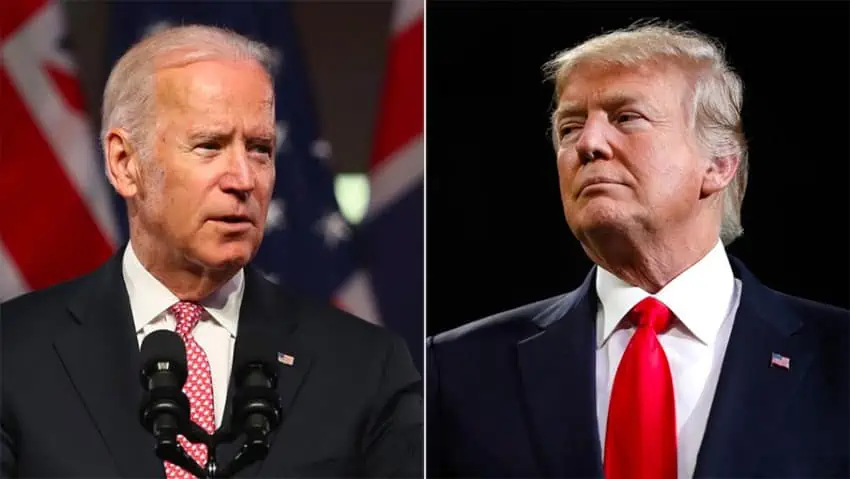
“That is the main risk. There is a kind of protectionist consensus [in the United States]. That’s why the review* of the trade agreement with the United States, and the trade relationship with them in general, could be more complex,” Ebrard said.
* A review of the United States-Mexico-Canada Agreement (USMCA), a free trade pact that superseded NAFTA in 2020, is scheduled for 2026.
On the USMCA review
Ebrard said that the USMCA’s dispute settlement system* needs to be improved.
“We must strengthen the dispute resolution system, with the panels, where you can present your arguments to avoid unilateral measures,” he said.
Changes are also needed in other areas, Ebrard said. One issue he cited was labor mobility, an apparent reference to a need for workers to be able to move more freely across national borders in North America.
What is needed, Ebrard said, is to “bring a series of regulations into line to favor Mexican companies.”
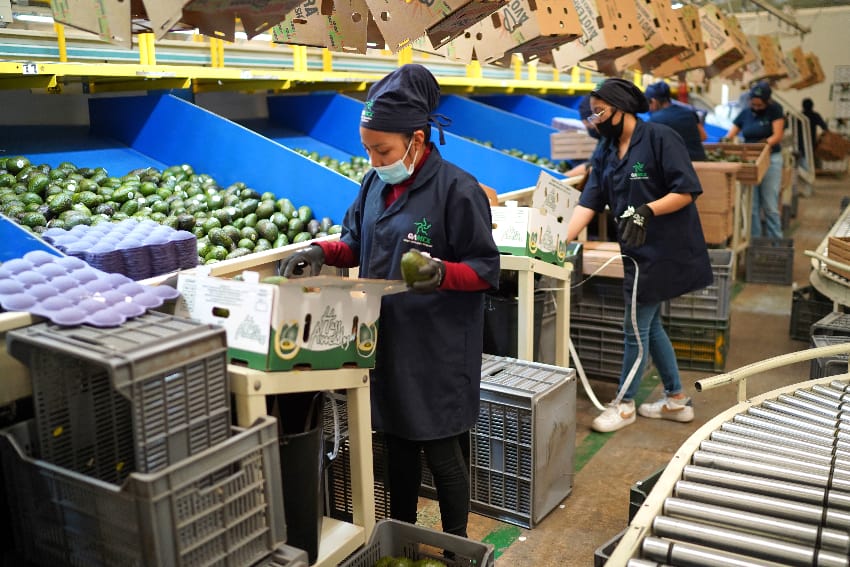
“We have to support transport companies, for example, which have always had disadvantageous conditions,” Ebrard said, apparently referring to trucking and rail companies that move goods around the region.
“We have to limit unilateral decisions, like what happened in the avocado case, he added.
“… We should try to limit that as much as possible. That’s what we should seek in the review of the agreement, which, we must clarify, is not a renegotiation, but a review.”
Ebrard also said that, “unlike the [NAFTA] renegotiation in 2018,” which resulted in the creation of the USMCA, a “very important geopolitical factor” will be at play during the 2026 review — “competition between the United States and China.”
* Mexico is currently engaged in disputes with the United States over its energy policies and its stance on genetically modified corn.
On Mexico’s relationship with the United States
“The bilateral relationship is always difficult” because the two countries have “different interests,” Ebrard said.
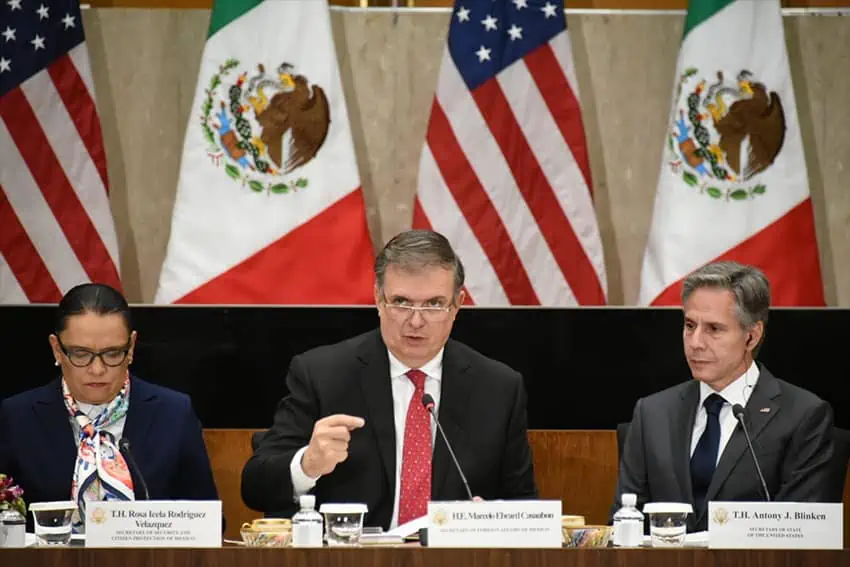
“But we have a good chance of succeeding because of the conditions I’ve just mentioned,” he said, referring to the growing economic interdependence of the two countries.
Ebrard said that Mexico and the United States have never previously been as close as they are today “in terms of trade, economic and financial exchange.”
Mexico, which is the United States’ top trade partner, “had never been so important for the United States,” he said.
* At bilateral security talks in late 2023, U.S. Secretary of State Antony Blinken said that “more than ever before” in his 30 years of experience in foreign policy, “the United States and Mexico are working together as partners in common purpose.”
On the nearshoring opportunity
“What North American companies that … import technology from Asia want is to bring [production] to North America in order to not depend [on Asia],” Ebrard said.
As an example, he noted that North American electric vehicle companies (such as Tesla) rely on microprocessors that are made in Asian countries. Those microprocessors should be manufactured in Mexico, the United States and Canada, Ebrard said.
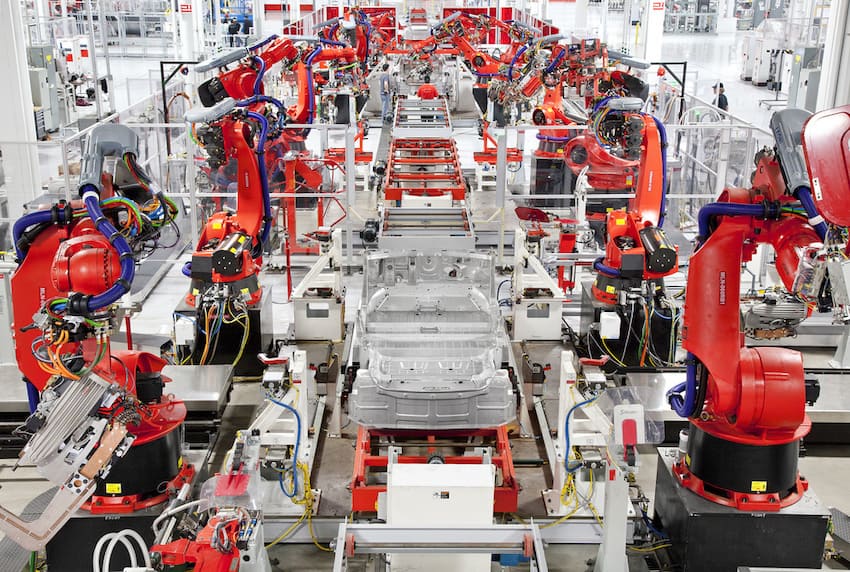
“There is a great opportunity” to attract advanced manufacturing companies to Mexico, he said.
Asked what the “pillars” of the Mexican economy will be in the coming years, Ebrard nominated “the relocation” of companies to Mexico, but stressed that foreign investment in Mexico must serve “the country’s interests.”
He also said that Mexico shouldn’t wait around “to see who comes,” but rather “go after the companies we’re interested in having [here].”
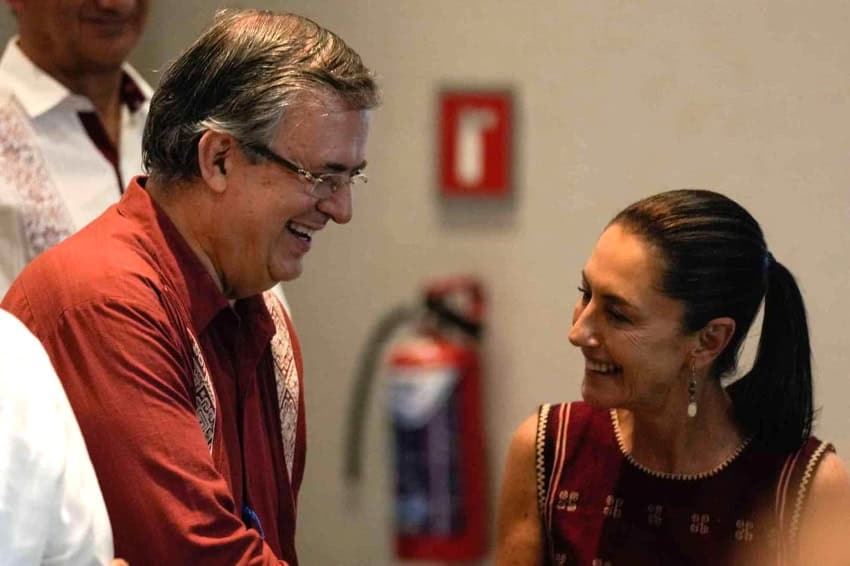
Ebrard also mentioned President-elect Sheinbaum’s plan to create “development hubs” and industrial corridors, in which different areas of Mexico, including parts of the historically disadvantaged south, would focus on attracting and supporting investment in certain sectors.
He stressed that “the development, growth and wealth of the country” shouldn’t be concentrated in “just some of its regions.”
“We have to seek to spread out [development and economic growth]. We have to support new companies [in Mexico]. … They’re going to be the pillars [of the economy] in the coming years,” Ebrard said.
“I’m very excited because [Sheinbaum* and I] agree on the ideas. I agree with what the doctor is proposing. Mexico has immense potential. We just need to open the door,” he said.
* Sheinbaum has described the nearshoring trend as a “great opportunity” for Mexico and asserted that it will help drive significant economic growth during the 2024-30 period of the federal government.
With reports from La Jornada
